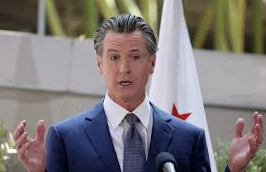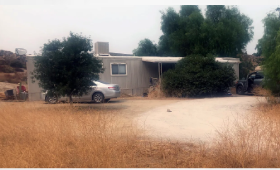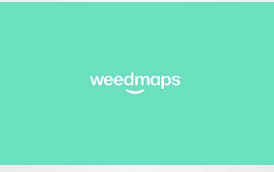Cannabis Business Times
California Gov. Gavin Newsom directed two state departments on April 26 to issue notices addressing the sale and distribution of potentially harmful products infused with hemp directives.
The notices—issued by the California Department of Public Health (CDPH) and the Department of Alcoholic Beverage Control (ABC)—seek to ensure compliance with existing law to protect young Californians in particular, according to the governor’s office.
“Mislabeled and misleading products do not belong in the marketplace—especially when they put our kids’ health and safety at risk,” Newsom said in a press release. “Today, the state is taking action to protect Californians, especially our kids, as we work to further close loopholes and increase enforcement to prevent children from accessing hemp and cannabis products.”
While licensed California dispensaries have been selling adult-use cannabis to those 21 and older since January 2018, the state regulates cannabis separately from the legal hemp market, where products are also required to comply with consumer safety laws and accurate labeling rules.
The Agriculture Improvement Act of 2018 (the 2018 Farm Bill) federally legalized industrial hemp, defined as having no more than 0.3% THC on a dry-weight basis, beyond state pilot programs. However, consumer dietary supplements, food or beverage products manufactured using industrial hemp in California must comply with the state’s Sherman Act, which specifies the allowed composition of industrial hemp products and imposes specific labeling and marketing restrictions, according the April 26 notices issued by CDPH and ABC.
Under state law, industrial hemp product manufacturers and distributors must register with the CDPH’s Food and Drug Branch (FDB). There are 136 authorized industrial hemp firms listed as registered with the FDB. An FDB listing doesn’t necessarily ensure individual products are compliant, but the CDPH and ABC advise retailers to check the list before placing products on their shelves.
FDB licensees are also expected to ensure industrial hemp products do not contain any THC isolates, which are often labeled as “THC extract” or “cannabis extract,” as well as any chemically synthesized cannabinoids, such as delta-8 THC, delta-10 THC, THC-O, and HHC, which are prohibited under the Sherman Act, according to the CDPH notice.
And licensees must also ensure labeling requirements are met, including a scannable barcode, internet website or QR code linked to a certificate of analysis by a licensed testing laboratory that provides the following:
- the product name;
- the name, address and phone number of the product’s manufacturer, distributor or packer;
- the batch number;
- the concentration of cannabinoids present in the batch; and
- the levels of contaminants in the batch.
The product expiration or best-by date also must be labeled, as well as statements about safely storing the product out of the reach of children, and the potential health risks involving consumption by children and pregnant or breastfeeding women, according to the notices. Products must also have the following statement: “The FDA has not evaluated this product for safety or efficacy.”
Read more at
https://www.cannabisbusinesstimes.com/news/california-governor-hemp-notice-illegal-products-label/


















